Start Exploring Keyword Ideas
Use Serpstat to find the best keywords for your website
How To Use Google Trends For Keyword Research

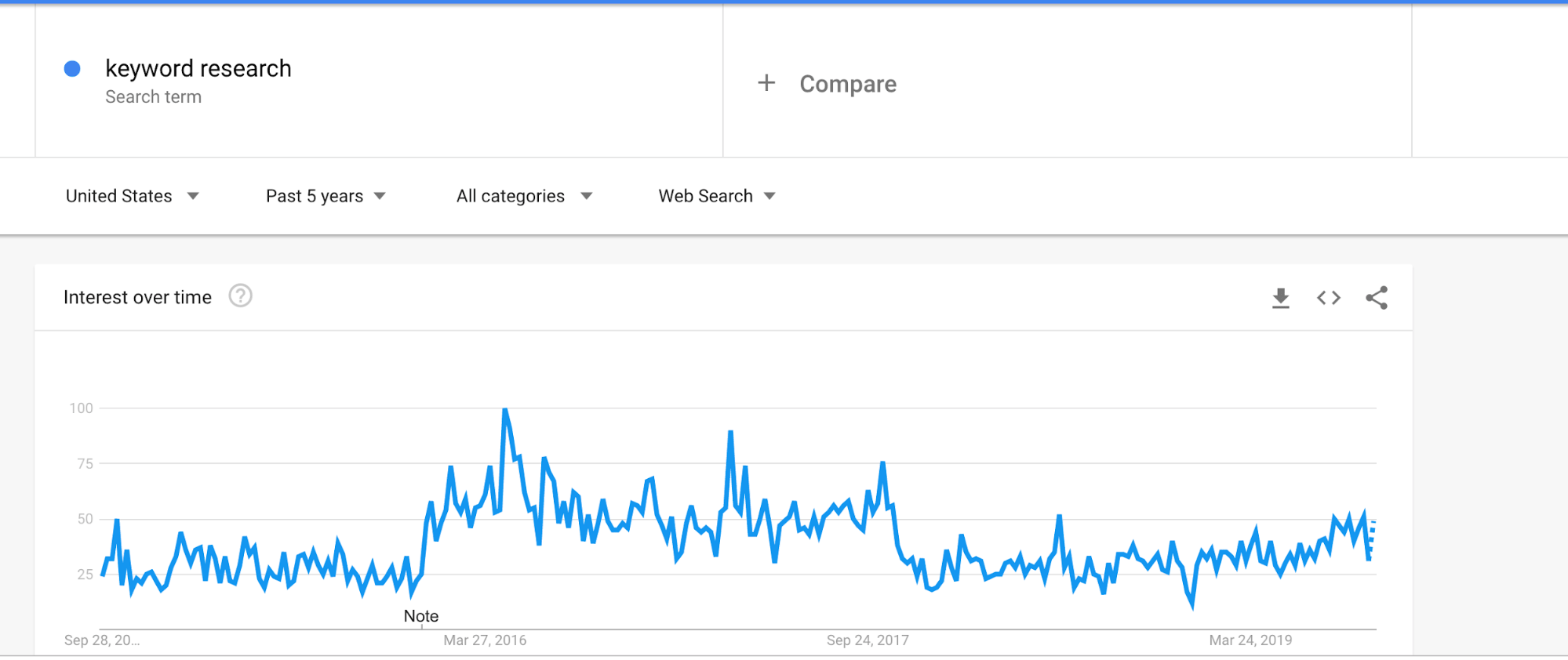
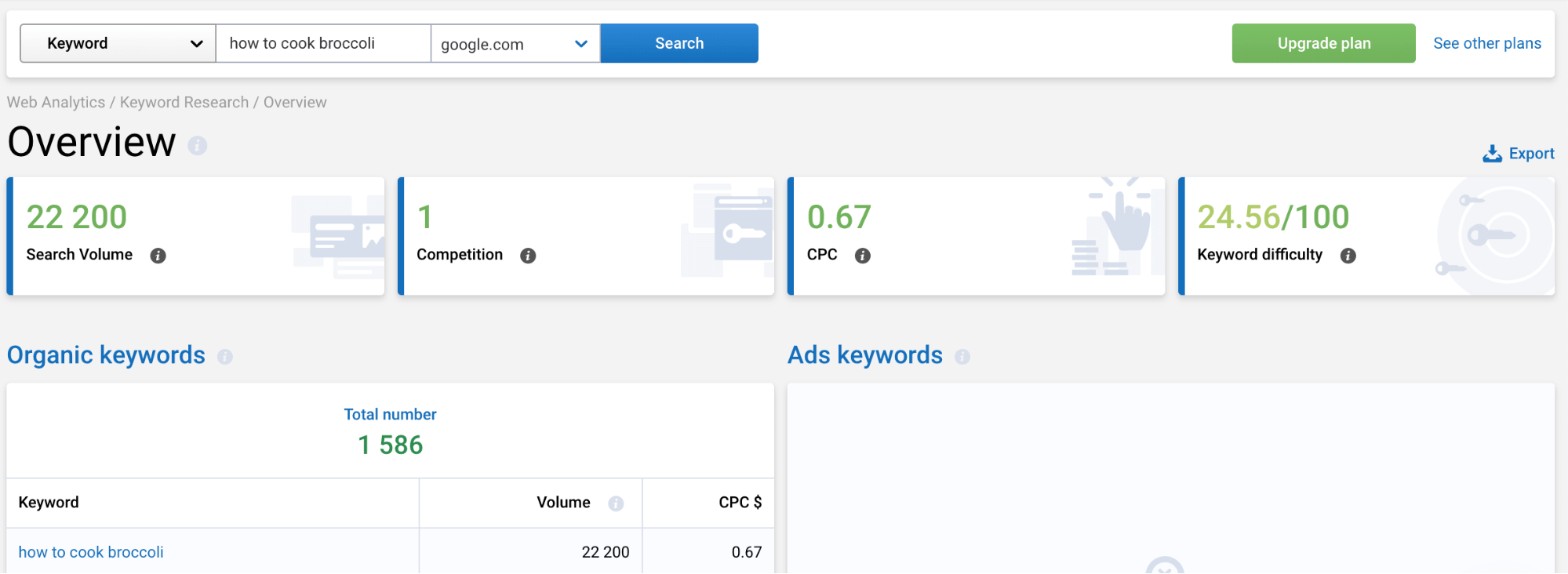
So, what's so special about keyword Google Trends? Can it really help you do SEO? To answer that question, it's essential to understand the nature of search optimization. SEO is an extremely fast-paced environment, with new methods and techniques popping up all the time. So, in this post, I want to show you how to use Google Trends reports to upscale your Google keyword research and take your SEO to the next level.
What is Google Trends?
By collecting various keyword search data you can learn a great deal of information about your target audience, their demographics, seasonal or event-triggered interests.
Apart from that, you can see the whole history and current status of the popularity of a certain search query, as in how often people enter a given keyword into Google's search bar.
Comparing and contrasting keyword statistics on Google Trends is a great way to plan your marketing strategy and get the best results possible in the long run.
How does Google Trends work?
When you analyze a chosen search query, Google Trends also suggests other related keywords, allowing you to see the full picture of the topic's popularity, rather than focusing on the specific term.
How to interpret what each graph on Google Trends means
According to Google, each piece of data on the graph serves for relative popularity comparison, it's achieved by splitting it by the total searches of the location and time frame, or else regions with the most search volume would always come first.
All the results get placed within a 0 to 100 range according to the topic's search volume against the search volume of all topics.
Identical search interest in a certain topic across different locations does not at all mean that it's been put into the search bar the exact same amount of times in total, whereas a zero rating doesn't mean that the analyzed keyword has never been searched. The latter only shows that the interest for a search term/topic was insignificant compared to the peaks.
Tracking season interests
Some keywords are having quite a steady demand. For example, keywords related to the business are popular throughout the whole year. But some keywords are only getting momentum during certain seasons, such as Christmas, Halloween, or Super Bowl.
In the screenshot below, you can see that Halloween-related search terms start to get more traffic starting in July, and the audience's interest keeps growing up until the end of October.
This situation repeats year after year, so we can talk about an actual trend here.
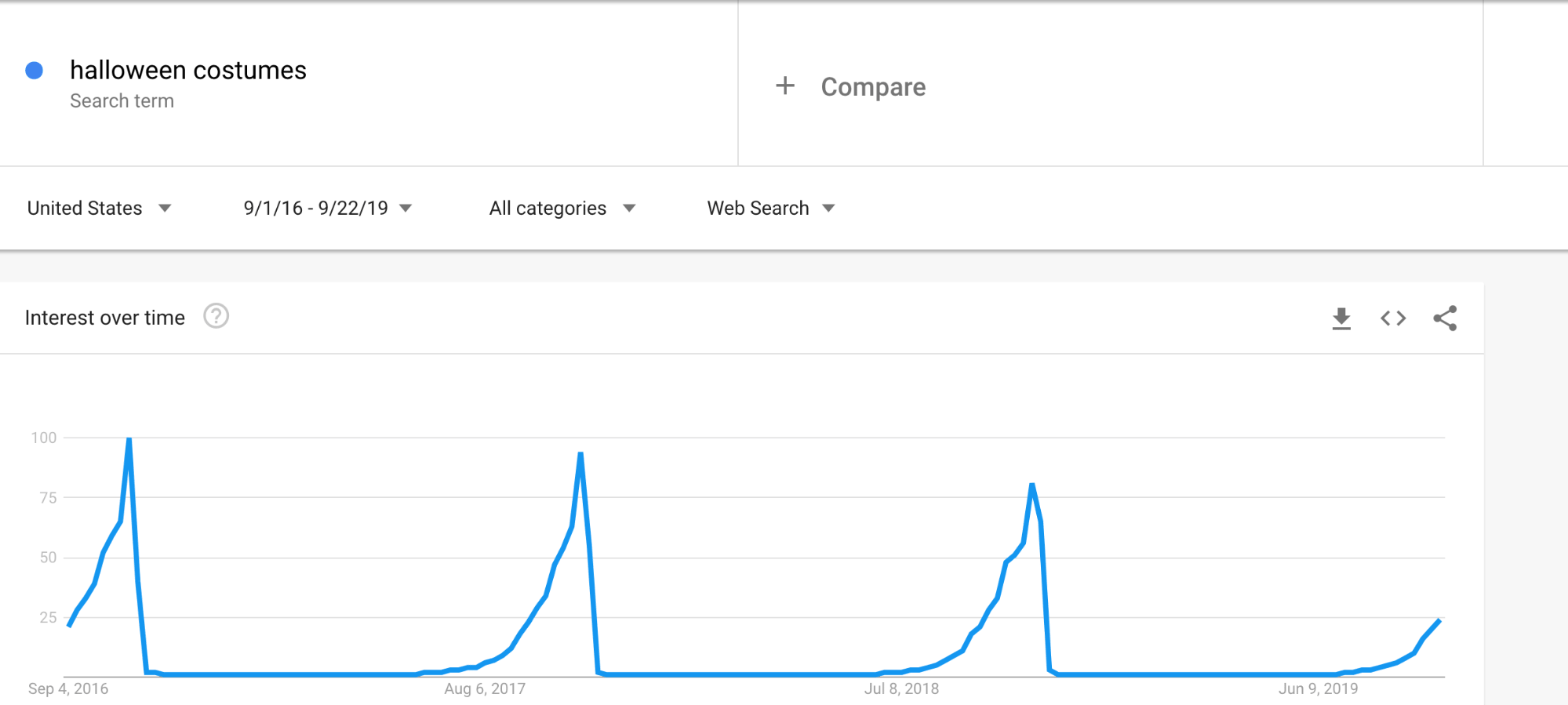
Serpstat analyzes Google Trends, and according to the following screenshot, the interest in the Halloween theme has already started to rise now.
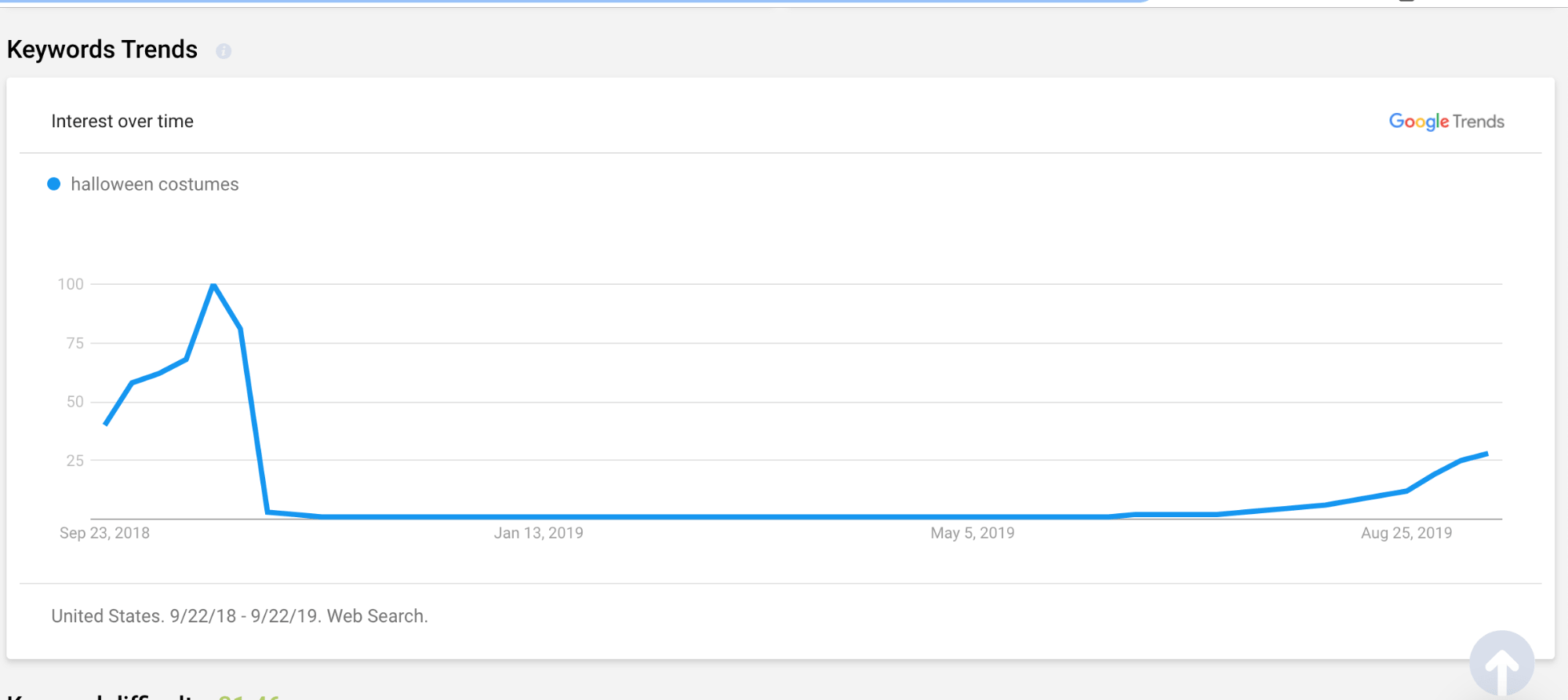
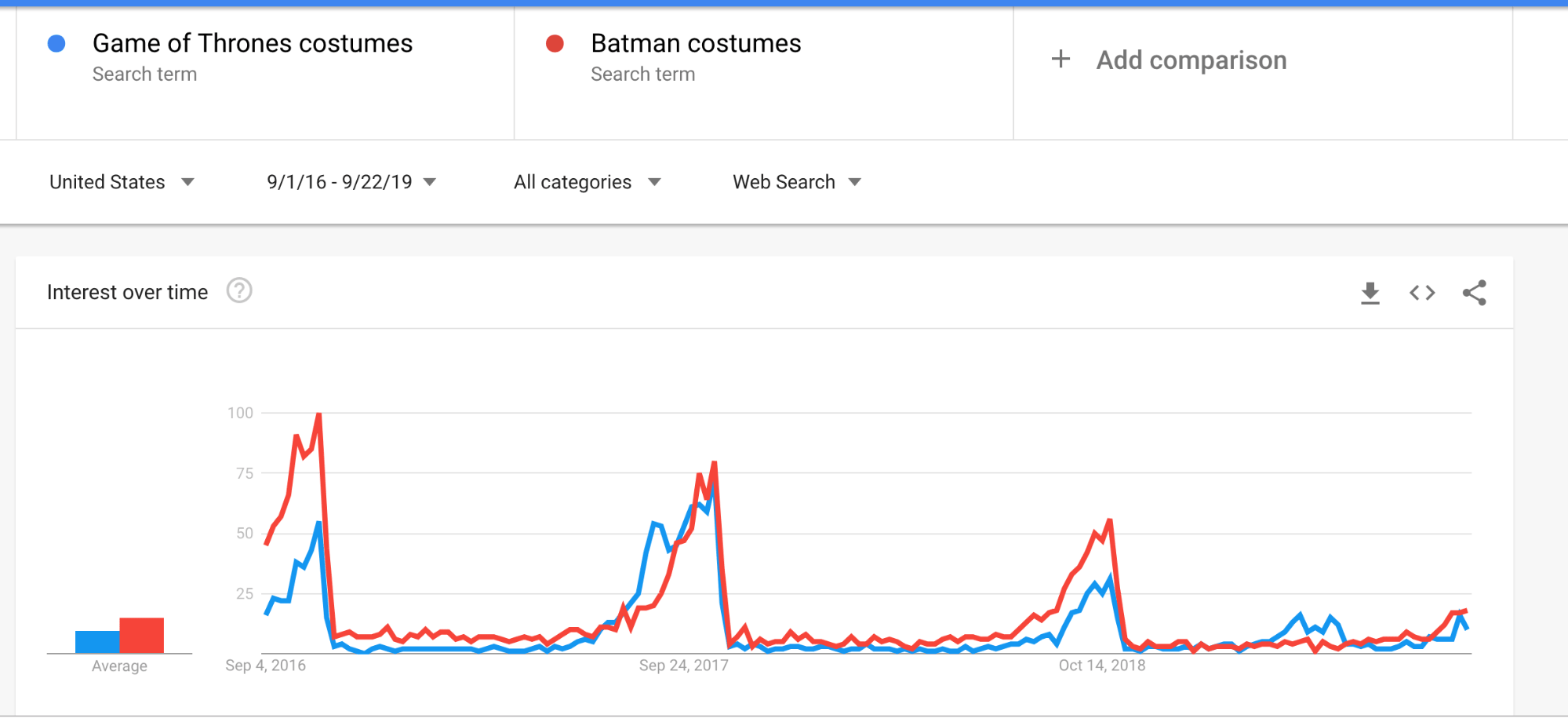
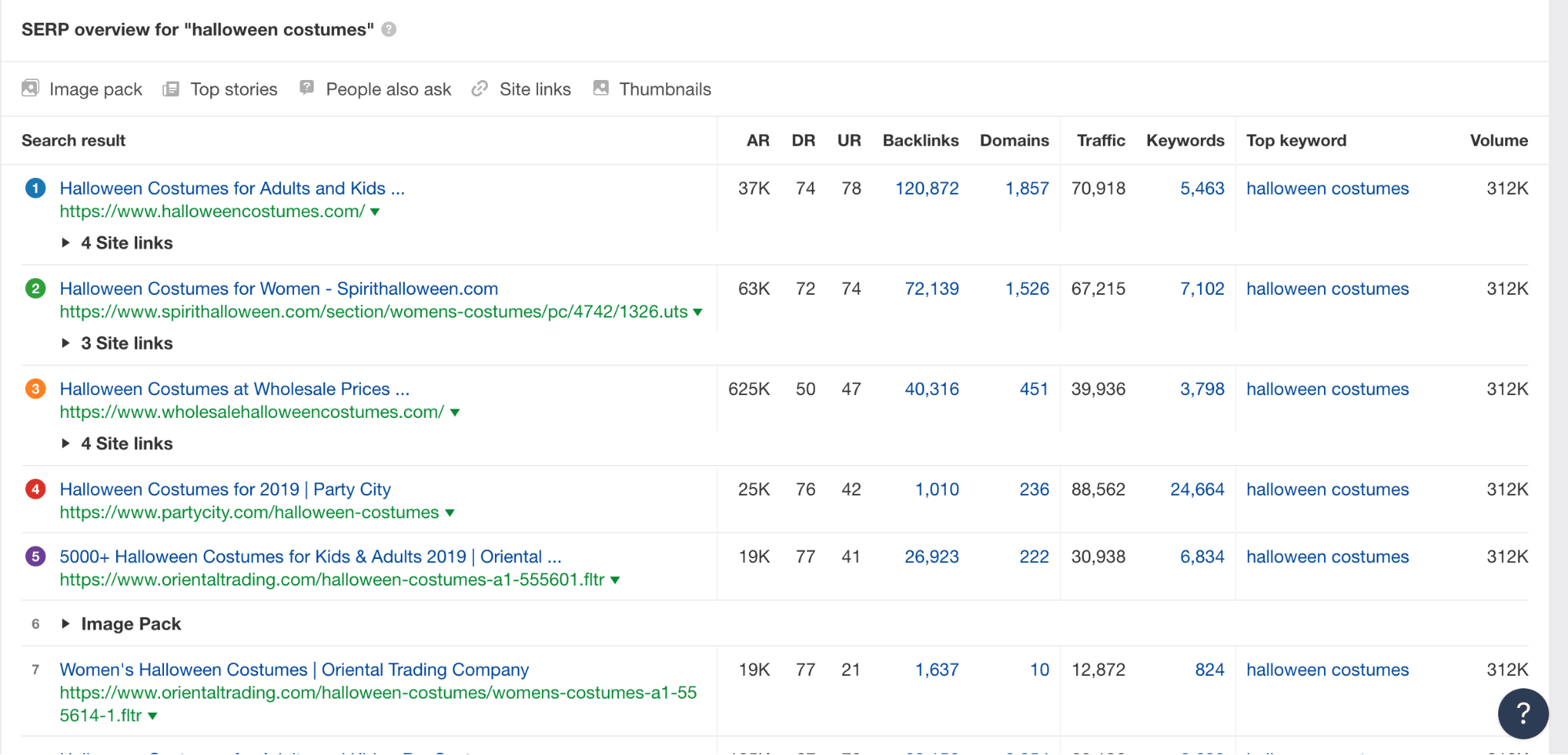
General trend (growing or decreasing)
Google keyword research is generally a time-consuming exercise, but finding keywords with a growing popularity trend one by one can be especially overwhelming. And we as marketers don't like manual labor, do we?
In Google Trends, there is a great feature that allows you to look up a broader scope of keywords related to your niche - that is, a search by "topic". Compared to "search term", a topic search gives you a much clearer view of what the users are interested in.
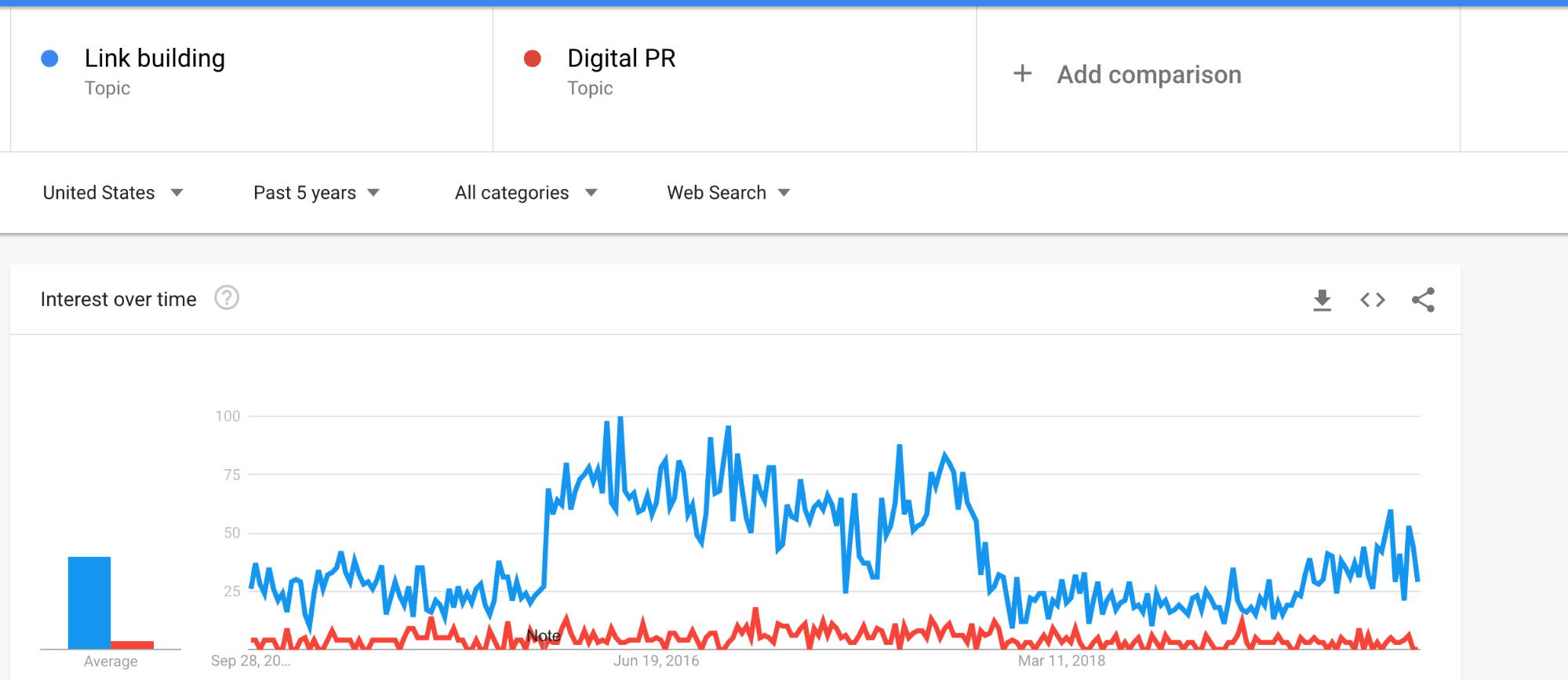
What you should remember is that evergreen content gives you the highest chances of getting to the top of search results. Searching Google Trends allows you to uncover those evergreen topics — the audience's interest in them is steady over time or even shows an increasing trend.
Coming up with new content ideas that have the highest chances to go viral
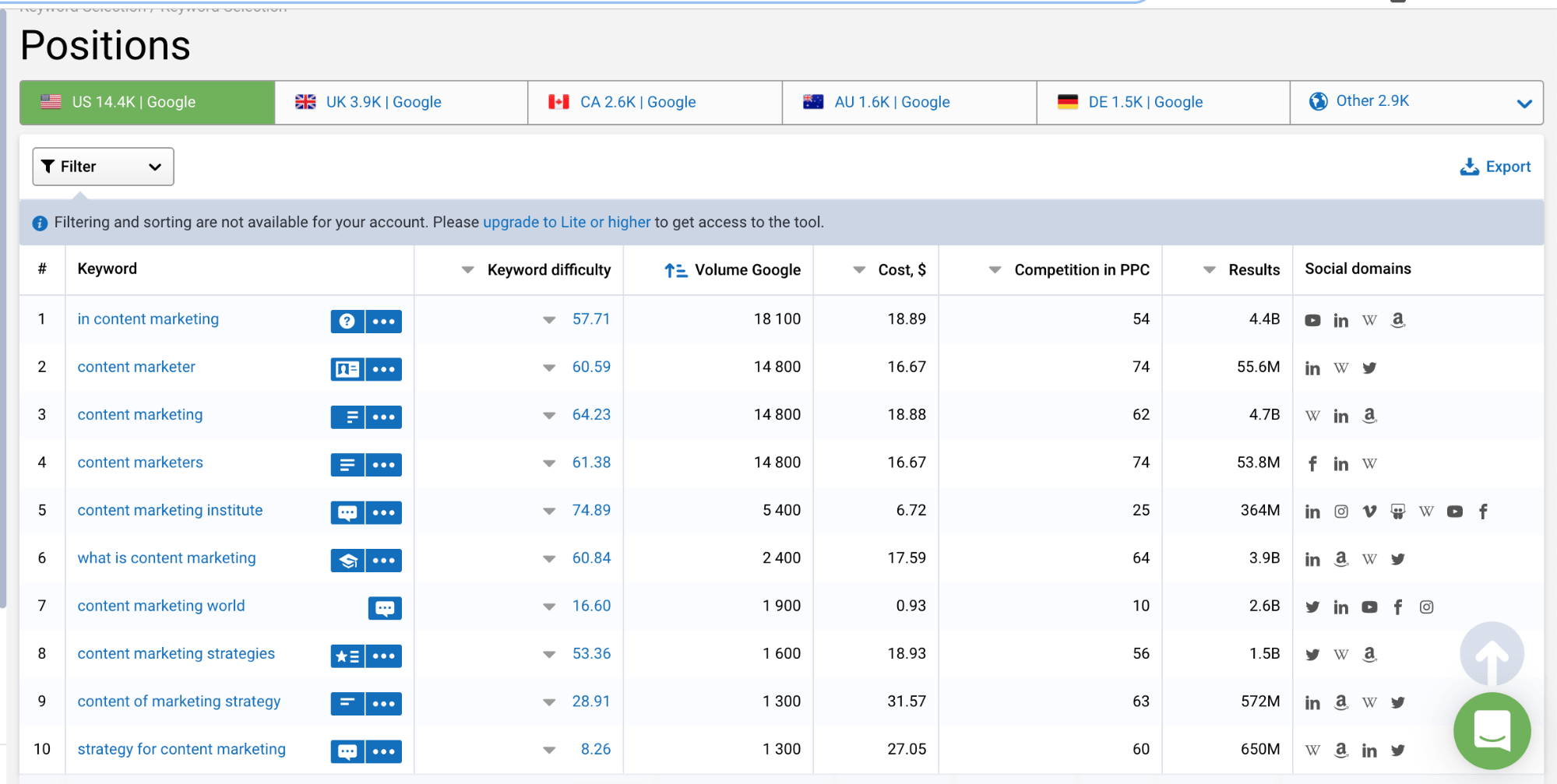

Additionally, you may check out more advanced keyword research tactics, such as TF-IDF analysis recommended by Aleh Barysevich:
Spotting hot topics (especially good for running PR campaigns)
Using these topics in your PR campaigns is great, as it allows you to pitch your content to journalists and media that wouldn't otherwise be as interested in writing about your industry in general.
The secret is to find the hottest topic of the day and the right angle to talk about your business within that topic.
You can find the most popular topics of 2019 in the Google Trends Year In Search section.
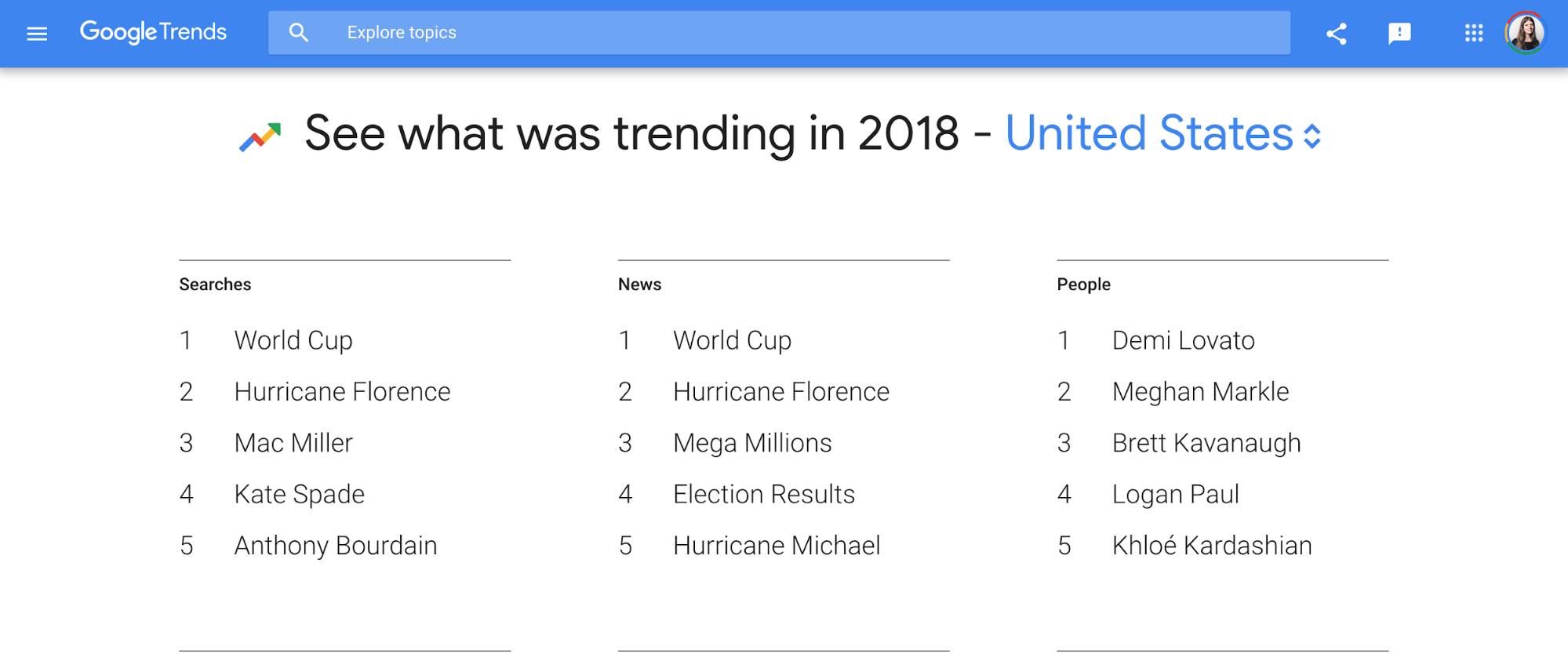
Because content marketing is often about brand building (not just clicks or links), Google Trends can help show the long-term impact of inbound efforts, whether those are more general or to popularize a specific term. Companies that have coined "brand-owned terms" are an interesting example. As we found, the rise of companies like HubSpot and Drift correlates closely with the growth of interest in terms they coined, like "inbound marketing" and "conversational marketing.
A related use-case: You can look back historically to find out when a term became popular and reverse engineer the strategy that helped it take off. For "growth hacking," for example, the catalyst was a follow-up blog post, not the initial publication of the article that coined the term.
Let me explain: take for example MailChimp, the total searches for Mailchimp are bigger than the all non-branded keywords combined. This tells a lot about how big is this brand and how well-positioned is in the mind of consumers when searching for email marketing tools. They don't even search "email marketing tool", they search for Mailchimp as their first choice.

1) it's cheap
2) it's always on position 1, no matter how many algorithms Google releases
3) it's always above the competitors
If you add volumes, then it's the perfect keyword to rank for.
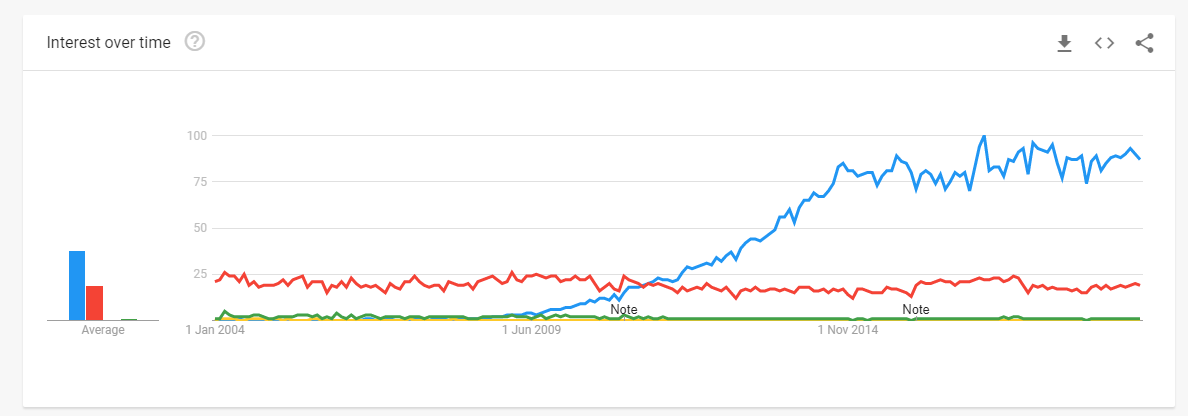
For example, explainer videos are explosively rising in popularity nowadays. Instead of "explainer video", go for longer keywords such as "best-animated explainer video". The long-tail keyword might not have the highest chances to go viral, but it has a steady growth.
Keep on digging
We send out a short questionnaire to our subscribers to figure out if they would like to learn more about the topic. If yes, we follow up with another open-ended question to understand what aspects they're most interested in. This ensures we satisfy user intent and it gives us a way to make our content a little different from everything else. Of course, we don't do it for every piece but if the term is valuable to us then it's worth going the extra mile to get it right.
FAQ:
Who needs Google trends service?
Marketers, business owners, SEO specialists, webmasters, online content creators and influencers, media outlets, and pretty much anyone who’s interested in getting insights on the popularity of certain topics.
What is the alternative to Google trends?
Serpstat, Ahrefs, MOZ Pro, SEMrush, SimilarWeb, SE Ranking, Keyword Tool, etc.
How to change Google Trends language?
1. Click on your profile picture in the top right corner.
2. Choose the Language or Location section.
3. Select the language or location of your preference.
How do I use Google Trends on YouTube?
Analyzing the popularity of keywords with Google Trends allows you to anticipate how the video is actually going to perform on the platform, rather than just guessing. You can collect Google's trend words and use them for optimizing the titles and tags of your videos, as well as find ideas for new content that your audience is most likely going to find.
Speed up your search marketing growth with Serpstat!
Keyword and backlink opportunities, competitors' online strategy, daily rankings and SEO-related issues.
A pack of tools for reducing your time on SEO tasks.
Discover More SEO Tools
Backlink Cheсker
Backlinks checking for any site. Increase the power of your backlink profile
API for SEO
Search big data and get results using SEO API
Competitor Website Analytics
Complete analysis of competitors' websites for SEO and PPC
Keyword Rank Checker
Google Keyword Rankings Checker - gain valuable insights into your website's search engine rankings
Recommended posts
Cases, life hacks, researches, and useful articles
Don’t you have time to follow the news? No worries! Our editor will choose articles that will definitely help you with your work. Join our cozy community :)
By clicking the button, you agree to our privacy policy.

